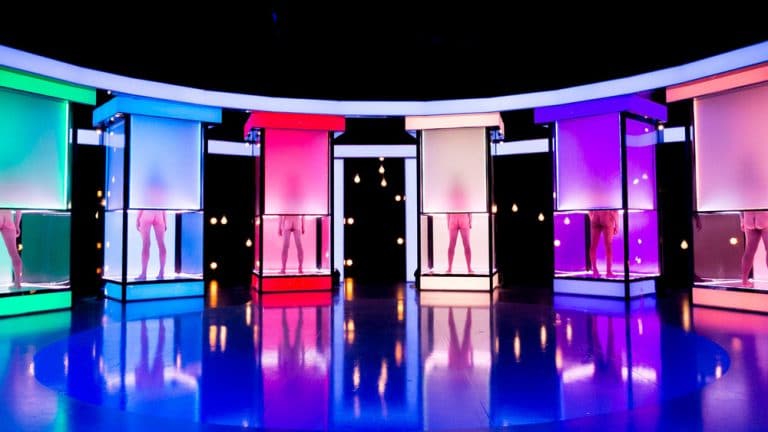What is Naked Attraction?

When I left Paris to move to London, I was expecting an understandable culture shock. Pubs replaced bistros and Sunday roasts became my new weekend brunches. What I didn’t expect was how different UK television is compared to French telly. One night while I was flicking through channels I ended up on Channel 4’s dating game show Naked Attraction. It was 10 p.m. and I wasn’t expecting to see full-frontal nudity on one of the UK’s most popular TV channels. So what exactly is Naked Attraction about and what should we think of it?
What is Naked Attraction?
To put it simply, Naked Attraction is a British television dating game show in which a person who is wearing clothes picks a potential partner out of six naked people, whose bodies and then faces are slowly revealed through successive rounds, from the feet up. Yes, the contestants are buck naked.
Once those six persons (men, women or both) have been whittled down to two, the person deciding then appears nude as well to select one of them for a—plot twist—fully clothed date. Naked Attraction then presents their feedback after the date.
Who is Naked Attraction’s presenter?
Presented by Anna Richardson, the show premiered on 25 July, 2016, and was renewed for a second, third, fourth, fifth and sixth series. It’s safe to say that Naked Attraction is a success on British TV.
Did people complain about Naked Attraction?
The programme received numerous complaints from viewers due to the full-frontal nudity that is featured. The broadcasting watchdog Ofcom chose not to investigate as there is nothing that breaches their rules: the show is purely a dating show and doesn’t contain any sexual activity. Furthermore, it is shown after the ‘watershed’, which is the time of day after which programming aimed towards mature or adult audiences is permitted.
Are people really naked on Naked Attraction?
Just in case some of you still don’t get it (as was the case with my French friends when I told them about the show), yes, people really are fully naked on national telly.
When is season 7 of Naked Attraction airing?
The last episode of season 6 aired on 6 February 2020. Although season 7 has already been confirmed, it first was said to have its first episode airing on 24 August 2020, and its last on 21 September 2020. Because of the COVID-19 pandemic, applications for the next series previously open in February and March were inevitably halted by lockdown. On 1 July however, the show officially restarted its search, taking to social media to look for singles brave enough to bare it all. In the meantime, Naked Attraction is currently airing classic episodes to fill gaps left by the coronavirus shutdown. Soon enough, we’ll be able to look at other people’s naked bodies and judge them based on their physical appearance only. Until then, feel free to watch previous seasons on Channel 4’s on-demand website.
And, if you dare, get involved in the new season here.





